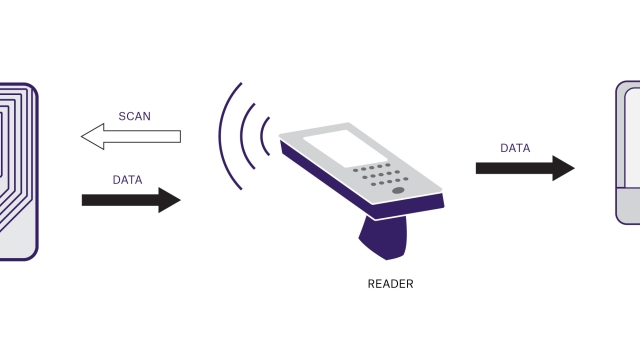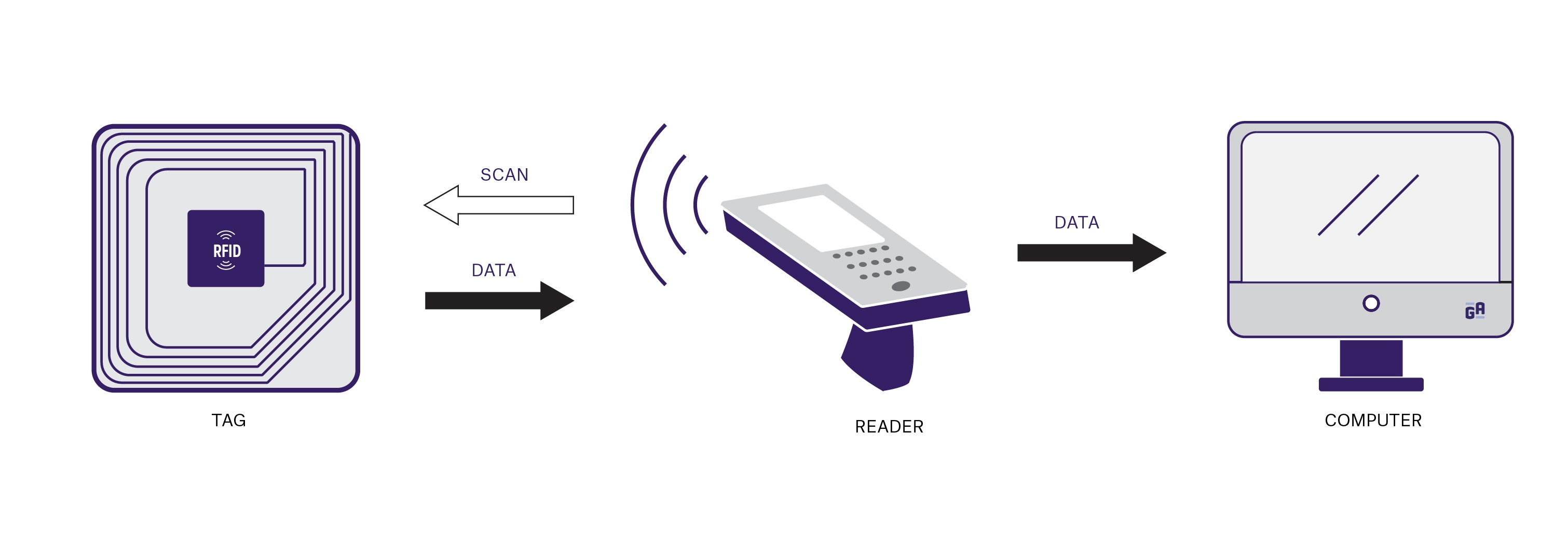
Revolutionizing Inventory Management: The Wonders of RFID Technology
RFID technology, also known as Radio Frequency Identification, has proven to be a game-changer in various industries, revolutionizing the way inventory management is conducted. By harnessing the power of wireless communication and data collection, RFID has emerged as a cutting-edge solution that offers unparalleled efficiency and accuracy. With its ability to track and identify items in real-time, this technology has transformed the way businesses handle their inventory, improving productivity, reducing costs, and paving the way for a more streamlined future.
At its core, RFID technology utilizes small microchips, equipped with unique identification codes, and specialized tags that can communicate with RFID readers via radio waves. This enables effective tracking of products, assets, and even personnel, bringing forth a host of benefits. Unlike traditional methods such as manual data entry or barcodes, RFID is capable of reading multiple items simultaneously and does not require line-of-sight, revolutionizing the way inventory management operates.
By implementing RFID technology, businesses can experience enhanced inventory visibility, allowing for greater control and optimization of stock levels. With real-time data capturing, companies have access to accurate insights about stock movements, helping streamline supply chains, minimize out-of-stock situations, and reduce excess inventory. This increased visibility also enables improved demand forecasting and inventory planning, leading to better decision-making and ultimately higher customer satisfaction.
Moreover, RFID technology enables efficient asset tracking, saving valuable time and resources. From warehouses to retail stores, companies can simply scan and locate items, eliminating the need for time-consuming manual searches. In addition, with enhanced security provided by RFID tags, the risk of theft and unauthorized access to critical assets is greatly reduced, providing businesses with peace of mind.
The wonders of RFID technology extend beyond inventory management. Industries such as healthcare, logistics, and manufacturing have also witnessed drastic improvements through RFID implementation. Whether it’s tracking medical equipment, improving supply chain visibility, or streamlining production processes, RFID has proved to be a versatile tool that empowers businesses to operate at their best.
It is evident that RFID technology is revolutionizing inventory management by offering a multitude of benefits ranging from increased visibility and improved accuracy to streamlined operations and greater efficiency. As businesses continue to explore innovative ways to optimize their operations, RFID stands out as a solution that not only meets but exceeds expectations. Far from a mere technological trend, RFID has proven its worth and is set to reshape the future of inventory management in ways we have only just begun to envision.
###Benefits of RFID Technology
RFID technology revolutionizes inventory management by offering a wealth of benefits to businesses. Through its use, companies can streamline their operations, improve inventory accuracy, and enhance overall efficiency.
Firstly, RFID technology enables real-time visibility into inventory. By attaching RFID tags to products, businesses can track and monitor their inventory in a dynamic and automated way. This allows for accurate, up-to-date information on stock levels, enabling better decision making and reducing the risk of stockouts or overstocking.
Secondly, RFID technology helps to reduce manual labor and human error. With RFID tags, businesses can automate the process of inventory counting and data collection. This eliminates the need for manual scanning or inputting of data, reducing the time and effort required for inventory management tasks, while also minimizing the risk of human error.
Lastly, RFID technology enhances supply chain visibility and improves overall efficiency. With RFID tags, businesses can track the movement of products throughout the supply chain, from manufacturing to distribution to retail. This increased visibility enables better coordination, faster delivery times, and effective inventory planning, leading to improved customer satisfaction and reduced costs.
In conclusion, the benefits of RFID technology in inventory management are significant. The ability to have real-time visibility, reduce manual labor, and enhance supply chain efficiency all contribute to improved operations and better business outcomes.
Implementation Considerations
When implementing RFID technology, there are several important factors that need to be taken into consideration to ensure a smooth and successful integration.
Firstly, it is crucial to carefully plan the layout and positioning of RFID readers and antennas. The effectiveness of the system relies heavily on having the right coverage and range for the RFID tags. By strategically placing the readers and antennas, businesses can optimize the reading accuracy and minimize blind spots. It is also important to account for any potential interference from metal or other materials that could affect the performance of the RFID technology.
Secondly, selecting the appropriate RFID tags is a key consideration. Different tags have different read ranges, memory capacities, and other features that may be important depending on the specific use case. It is important to choose tags that are compatible with the environment in which they will be used, such as tags that can withstand harsh conditions or extreme temperatures. Additionally, considering the cost-effectiveness of the tags is important, especially for businesses with large-scale inventory management needs.
Lastly, integrating the RFID technology with the existing inventory management systems is crucial. This requires a comprehensive understanding of the current systems and processes in place. Smooth integration often involves developing middleware or custom software that can interface with both the RFID technology and the existing systems, ensuring seamless data synchronization and accuracy. It is also important to train employees on how to effectively use the RFID technology and how it fits into their daily workflows.
By carefully considering these factors during the implementation of RFID technology, businesses can revolutionize their inventory management processes and unlock the full potential of this powerful technology.
Case Studies of Successful RFID Integration
- Clothing Retailer: Enhancing Supply Chain Efficiency
A leading clothing retailer implemented RFID technology to revolutionize its inventory management processes. By tagging each item with an RFID tag, the retailer gained real-time visibility into its inventory levels and locations. This allowed for seamless tracking and monitoring of stock from the moment it arrived at the distribution center to its final placement on store shelves. With the help of RFID technology, the retailer experienced a significant reduction in out-of-stock instances and improved overall supply chain efficiency.
- Hospital: Streamlining Medical Equipment Tracking
RFID software Malta
In a busy hospital environment, keeping track of medical equipment can be a challenging task. However, with the integration of RFID technology, a hospital successfully streamlined its equipment management. By affixing RFID tags to essential devices such as IV pumps and defibrillators, hospital staff could easily locate and monitor the whereabouts of each item. This enhanced tracking capability not only saved time and effort but also improved patient care as medical professionals could quickly retrieve necessary equipment when needed.
- Warehouse Management: Optimizing Inventory Accuracy

A large warehouse faced difficulties in maintaining accurate inventory records due to the sheer volume of items being stored and moved regularly. To overcome this challenge, the warehouse implemented RFID technology into its inventory management system. By utilizing RFID tags on each product, the warehouse achieved a more accurate and efficient inventory tracking system. With real-time updates on item locations and quantities, the staff could easily locate specific products, leading to improved picking and packing processes and ultimately reducing errors in order fulfillment.
These case studies highlight the immense potential of RFID technology in transforming inventory management processes across various industries. Through successful integration, organizations can achieve enhanced efficiency, improved accuracy, and ultimately, maximize their overall operational effectiveness.



